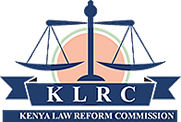A dynamic and responsive agency for progressive law reform
“To provide leadership in law reform through the continuous review of the law, ensuring its systematic development and reform in conformity with the Constitution"
“Responsive Law Reform”
Core Values
Other than our Vision, Mission and Values, we believe that the principle' of law reform should ordinarily be embodied in a Commission or Agency with certain distinguishing characteristics: it should be permanent, authoritative, full-time, independent, generalist and consultative.
A. Permanent
The permanence of an institutional law reform agency provides some inherent advantages over more ad hoc arrangements in furthering the reform process. These include retention of process expertise, ability to engage in long-term projects and publicity.
B. Authoritative
A critical factor in winning and maintaining respect for a law reform Commission is ensuring that is scholarship is absolutely first class. Law reform work must always proceed from a meticulous treatment of black letter law and a clear understanding of the surrounding process. Only after that it is possible to consider intelligently the possibilities for reform and to make recommendations that are authoritative, realistic and achievable. So that even where they are not acted on immediately, they may serve to shape attitudes, values and understandings into the future, laying the groundwork for reform at a later time.
C. Full-time
Many different models have emerged in the Commonwealth and elsewhere about how to structure and manage the operations of standing law reform Commissions- driven mainly by considerations of funding rather than optimal performance.
Our view is that a standing law reform commission needs to least some full-time and engaged Commissioners and a critical mass of excellent research staff in order to achieve a high quality product.
D. Independent
It is fundamental to success that a law reform Commission maintains its independence. To some extent, this flows from the formal establishment of institutional law reform agencies by statute – although few enabling Acts specifically use the term 'independent'.
Internally, this refers to a Commission's intellectual independence – the willingness to make findings and offer non-partisan advice and recommendations to government without fear or favor. Without this essential quality, a Commission would be no different from a ministerial office or government department operating under political direction, or a consultancy contracted to deliver a desired result. Although intellectual independence must be fiercely guarded, it is also true that, as a public agency, a law reform Commission must remain accountable and operate within boundaries defined by their constitutive legislation.
E. Generalist
With the great proliferation and dispersal of law reform activity in Kenya, much of it in the hands of ad hoc Committees, Task Forces and other organizations, one of the most important contribution a standing law reform agency can now make is to remain a generalist body, endeavouring to work in any area of law or procedure, when asked, and making a virtue of this flexibility. Indeed, the most exciting references are those that take you outside your comfort zone.
F. Consultative
Another of the defining characteristic of a law reform commission is that it operations fully in the public domain. A deep commitment to undertaking extensive community consultation as an essential part of research and policy development is the sine qua non of the law reform commission. Ultimately, it is the attribute that distinguishes it from other bodies that have a law reform aspect to their work. The leading case on the meaning of consultation is R v Secretary of State for Social Services ex parte Association of Metropolitan Authorities (1986) 1 All ER 164;
'The essence of consultation is the communication of a genuine invitation to give advice and a genuine consideration of that advice. In my view it must go without saying that to achieve consultation sufficient information must be supplied by the consulting to the consulted party to enable it to tender helpful advice. Sufficient time must be given by the consulting to the consulted party to enable it to do that, and sufficient time must be available for such advice to be considered by the consulting party. Sufficient in that context does not mean ample but at least enough to enable the relevant purpose to be fulfilled. By helpful advice, in this context, I mean sufficiently informed and considered information or advice about aspects of the form of substance of the proposals, or their implications for the consulted party, being aspects material to the implementation of the proposal as to which (the consulting party) might not be fully informed or advised and as to which the party consulted might have relevant information or advice to offer'. (Webster J.)
The element of public participation is especially important since the Constitution itself demands public participation in various spheres- the National Values [Article 10]; the principle that authority assigned to a State Officer is a public trust [Article 73]; Public participation in the legislative process [Articles 118 and 119]; Membership of the Judicial Service Commission [Article 171]; Membership of the Tribunal on Removal of Judges [Article 161]; and involvement of the public in policy formulation [Article 232] amongst others.
G. Implementation-minded
A law reform commission report is not self-executing. The commission may provide advice and recommendations about the best way to proceed, but implementation is always a matter for others. The extent to which a law reform commission can influence policy, and maintain public confidence and the respect of government, will depend substantially upon its ability to craft recommendations that are practical and susceptible to ready implementation.
